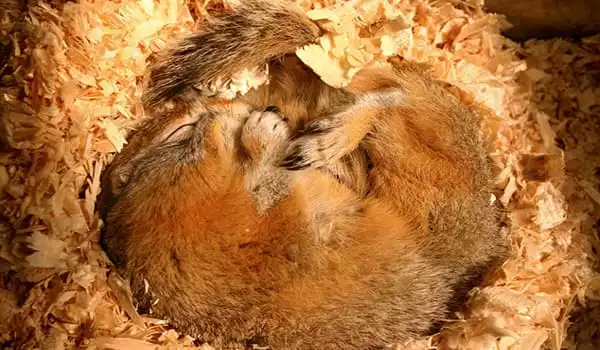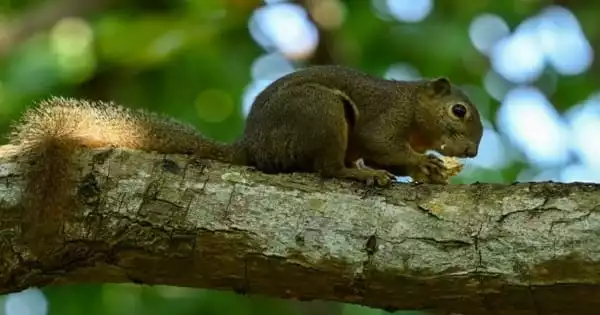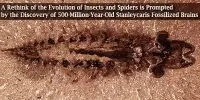Ground squirrels are the only squirrels that hibernate during the winter. Tree squirrel species will hibernate for the winter. Both of these activities are examples of squirrel dormancy. This enables them to be less active throughout the winter in order to conserve energy. Sleeping and eating are the two most important things for winter resting squirrels to do in order to survive.
Gut microorganisms assist certain squirrels in staying strong during hibernation. Researchers reveal in Science that the microbes appear to assist squirrels recycle nutrients in order to keep the rodents’ muscles taut.
Understanding how squirrels keep their muscle over the winter could offer a small clue to figuring out how to stave off muscle loss for people who are malnourished or have muscle-wasting diseases, the scientists say.
“After long bed rest, humans are just not jumping up and down and climbing mountains,” says study coauthor Hannah Carey, a hibernation physiologist at the University of Wisconsin-Madison. “But that’s what these [squirrels] have to do.”
Muscular breakdown caused by inactivity or hunger releases nitrogen molecules – a critical ingredient present in muscle building blocks known as amino acids. Because too much nitrogen can be hazardous, the body generally removes excess nitrogen through urine in the form of urea.
Understanding how squirrels keep their muscle over the winter could offer a small clue to figuring out how to stave off muscle loss for people who are malnourished or have muscle-wasting disease. After long bed rest, humans are just not jumping up and down and climbing mountains. But that’s what these [squirrels] have to do.
Hannah Carey
Warm-blooded animals hibernate, which is a condition of dormancy. As a result, their heart rate, temperature, and breathing rate all decrease. This permits the animal to conserve energy and withstand the winter months without having to hunt for food. Hibernation might endure for a few days or several months.
Hibernation is not just a deep sleep. The animal’s body will shut down to minimal levels to save as much energy as possible. During hibernation, the body will rely on fat stores so the animal does not need to wake to eat. The lack of food and water means they also do not need to get rid of any waste during this time.
Ground squirrels can hibernate because their bodies have the necessary mechanisms. The ground squirrel’s body is capable of reducing vital activities such as heart rate and urine production. This allows ground squirrels to survive without eating, drinking, peeing, or pooing, and with very little breathing. During this stage, their bodies are also engineered to be resistant to muscle and cell loss.
Other squirrel species do not have the same bodily abilities to hibernate as ground squirrels. Other squirrel species cannot physically hibernate as a result. At some time, they would have to eat, drink, or pee.

Previous research has revealed that arctic ground squirrels (Urocitellus parryii) can recycle nitrogen for muscle maintenance without the assistance of intestinal microorganisms. Carey and colleagues used an isotope, a type of the element with a different mass, as a tracer to monitor where nitrogen travelled in the bodies of thirteen-lined ground squirrels (Ictidomys tridecemlineatus) in the current study. Nitrogen that had been digested by bacteria ended up in skeletal muscle of hibernating squirrels. Animals given antibiotics to clean out gut-inhabiting bacteria integrated less nitrogen into muscle, indicating that the microbes were to blame.
Scientists are fascinated by how hibernating mammals live for so long at such low temperatures without any food or water other than what they have stored in their own fat for a variety of reasons. Hibernation is an extraordinary biological achievement and a chance to learn new ways of pushing the human body beyond its apparent boundaries, as well as repairing it when it breaks down. The brain of the arctic ground squirrel, in particular, appears to be extremely robust.
When ground squirrels hibernate, their neurons shrink and numerous neural connections shrivel. However, their brains compensate for this loss on a regular basis with huge growth spurts, increasing neuronal links beyond what existed before hibernation. Learning how the ground squirrel’s brain recovers could help scientists not only comprehend the plasticity of the brain, but also reveal new techniques to repair or avoid cellular damage in neurodegenerative illnesses. Recent study on hibernating brains, in particular, is rethinking how some scientists think about malformed tau proteins, which are a hallmark of Alzheimer’s disease.
Some gut microbes salvage nitrogen from urea and use it to make amino acids. Hibernating squirrels can then use those amino acids to preserve muscle, the findings suggest. It seems that to help the creatures stay strong, Carey says, microbes and squirrels come together.















